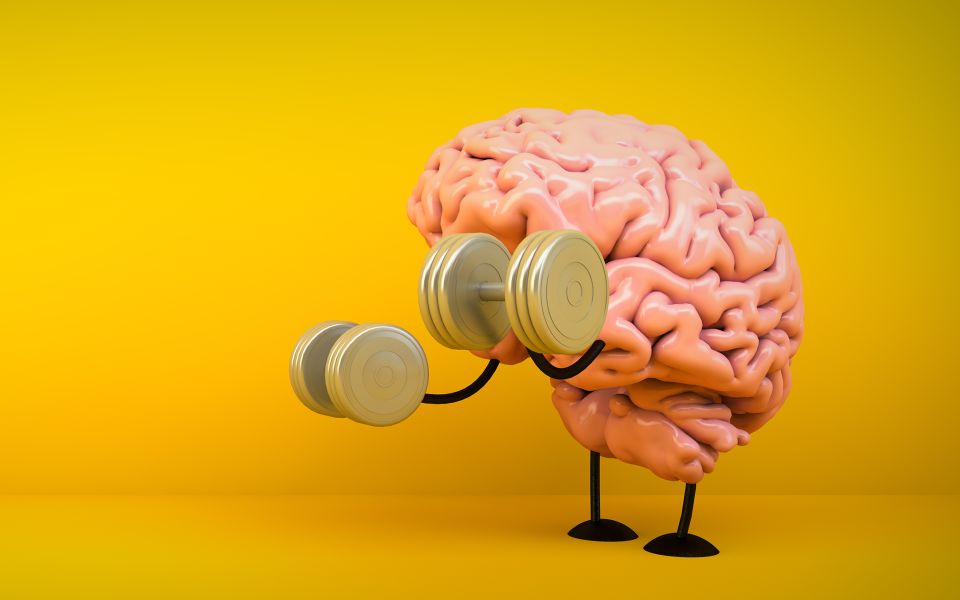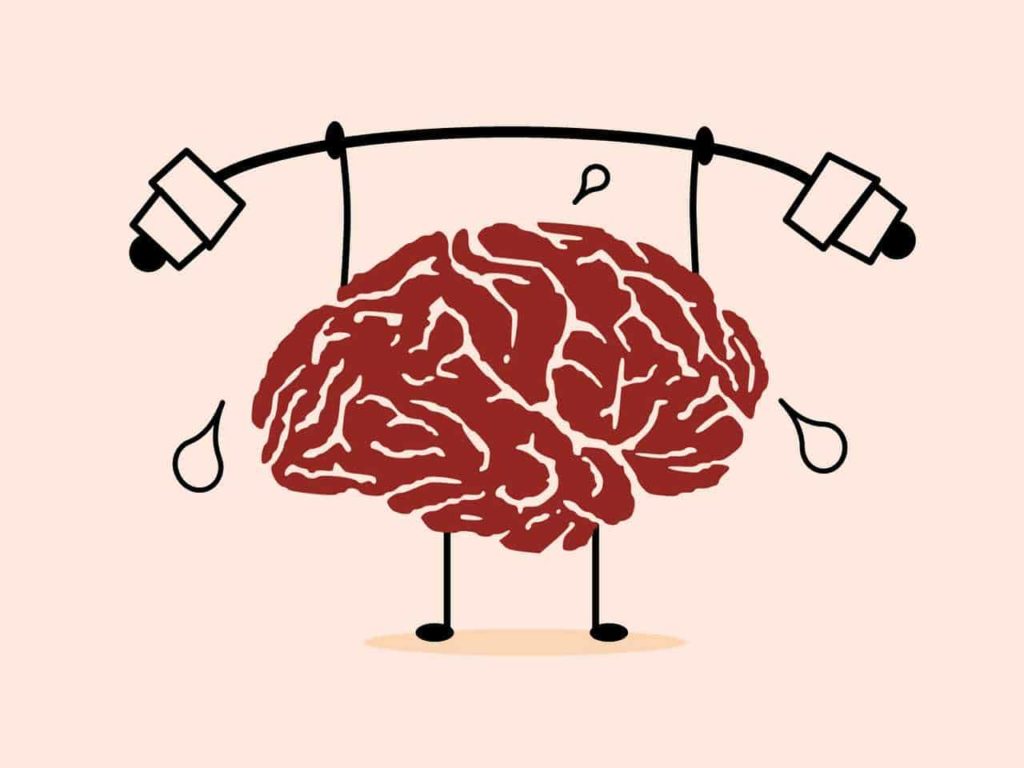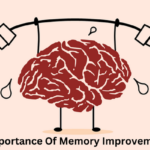Memory Exercises: Unlocking the Potential of Your Brain

Memory Exercises Introduction
The importance of memory exercises
Memory exercises are crucial for unlocking the full potential of our brains. They help to improve cognitive function, increase focus, and enhance our ability to recall information. They are also an effective way to prevent age-related decline in memory and to keep our minds sharp as we age.
Memory exercises can also help to improve our daily lives by making it easier to remember important tasks, appointments, and information. Additionally, memory exercises can help to improve our self-esteem and confidence as we feel more capable of retaining and recalling information. Overall, memory exercises are an essential tool for maintaining a healthy brain and improving our overall quality of life.
Overview of the article
The article, “Memory Exercises: Unlocking the Potential of Your Brain,” aims to provide a comprehensive overview of the importance and benefits of memory exercises. We will delve into the different types of memory exercises, including visualization techniques, repetition, and mnemonic devices, and provide tips on how to create an effective memory exercise routine.
Additionally, we will discuss the science behind memory and how these exercises can help improve cognitive function. By the end of this article, readers will have a greater understanding of the importance of memory exercises and be equipped with the tools to improve their own memory.
>>> Check Out This Safe, All-Natural ‘Brain Booster’ Promotes Optimum Memory and Mental Functioning Here.
Thesis statement
Memory exercises are a valuable tool for improving cognitive function and overall brain health. By providing an in-depth examination of the different types of memory exercises, as well as tips for creating an effective routine, this article aims to empower readers to take control of their memory and unlock their brain’s full potential.
The scientific evidence supporting the efficacy of memory exercises will be presented, and the benefits of regular practice will be highlighted. The goal of this article is to educate and inspire readers to prioritize their brain health through regular memory exercises.
Understanding Memory
Types of memory
There are several different types of memory, each with their own unique characteristics and functions. One of the most well-known types is short-term memory, which is responsible for temporarily holding and processing information that is immediately relevant. For example, when you are memorizing a phone number, it is stored in your short-term memory until you have the chance to write it down or input it into your phone.
Another type of memory is long-term memory, which is responsible for storing information over extended periods of time. This type of memory includes things like memories from childhood, facts, and skills you have learned. A third type of memory is working memory, also known as “working” or “active” memory, which is responsible for holding and manipulating information in the mind while performing other mental tasks.
An example of working memory is memorizing a list of items while you are doing a shopping. All of these types of memory are important for different reasons, and regular memory exercises can help improve all of them.
How memory works

The human brain is a complex organ, and the way it processes and stores information is still not fully understood. However, scientists have discovered that there are different types of memory, each of which works in a unique way. Short-term memory, also known as working memory, is responsible for holding information for a brief period of time, usually a few seconds to a minute.
Long-term memory, on the other hand, is responsible for storing information for much longer periods, sometimes even a lifetime. The process of memory formation involves the transfer of information from short-term to long-term memory through a process known as consolidation.
This process is thought to involve the strengthening of connections between neurons in the brain, which allows for the storage of new information. Additionally, the process of memory recall, which is the process of retrieving stored information, is thought to involve the reactivation of these connections in the brain.
Factors that affect memory
Memory is a complex process that is influenced by a variety of factors. Some of the most significant factors that can affect memory include genetics, age, lifestyle, stress, and overall health. For example, genetics can play a role in the development of certain memory disorders, such as Alzheimer’s disease.
Age is also a significant factor, as memory tends to decline as we get older. Lifestyle factors, such as diet and exercise, can also have a big impact on memory. Stress and overall health can also play a role, as chronic stress and certain health conditions can negatively affect memory. Understanding these factors can help us develop effective strategies for improving our memory and protecting our brain health.
>>> Check Out This Safe, All-Natural ‘Brain Booster’ Promotes Optimum Memory and Mental Functioning Here.
Memory Exercises
Types of memory exercises

Types of memory exercises are diverse and can be tailored to fit different needs and learning styles. Some examples of memory exercises include:
- Mnemonics: These are memory aids that use associations and patterns to help remember information. Examples include the peg system and the method of loci.
- Repetition: Repeating information over and over again can help to commit it to memory. This can be done through flashcards, verbal repetition, or writing the information down multiple times.
- Chunking: Breaking large amounts of information into smaller, manageable chunks can make it easier to remember. This can be done by grouping similar concepts together or by breaking up information into sections.
- Visualization: Creating mental images of the information can help to make it more memorable. This can be done by picturing a scene or by using imagery to represent words or concepts.
- Active recall: Testing oneself on the information being learned, instead of just passively re-reading it, can aid in the memorization process. This can be done through flashcards, quizzes, or self-made tests.
- Mind mapping: This is a technique that helps to organize and connect information. It can be used to visualize the relationships between different pieces of information.
- Mental games: Brain-training games, such as crosswords and Sudoku, can help to improve memory.
- Meditation: This technique can help to reduce stress and improve focus, which can lead to better memory.
How to create a memory exercise routine
Creating a memory exercise routine is crucial for improving and maintaining your memory. The key to developing an effective routine is to make it consistent, challenging, and enjoyable. To start, consider your current lifestyle and schedule and set aside a specific time each day for memory exercises. It’s also important to vary the types of exercises you do to target different areas of the brain and keep your brain engaged. Here are a few tips for creating a memory exercise routine:
- Set a specific time each day for memory exercises and make it a non-negotiable part of your daily routine
- Choose exercises that target different areas of the brain, such as visual, auditory, and spatial memory
- Vary the difficulty level of the exercises to keep your brain challenged
- Make the exercises enjoyable, for example, use memory games or puzzles that you enjoy
- Incorporate mindfulness and relaxation techniques such as meditation or yoga to help improve focus and concentration
- Keep track of your progress and make adjustments as needed
- Be patient and consistent, it takes time and practice to see results.
Recommendations for memory exercises
When creating a memory exercise routine, it is important to find exercises that work for you and fit into your lifestyle. It is also important to vary your routine and to challenge yourself by increasing the difficulty of exercises as your memory improves. Additionally, it is recommended to set specific, measurable goals for your memory improvement and to track your progress.
Incorporating a healthy diet, regular physical activity, and stress management techniques can also aid in memory improvement. It is important to consult with a healthcare professional before starting any new exercise or memory improvement program.
Improving Memory through Lifestyle Changes

Sleep
Sleep is crucial for memory consolidation and recall. During sleep, the brain processes and organizes the information learned during the day, strengthening the connections between neurons and making it easier to retrieve the information later. Studies have shown that people who get enough quality sleep have better memory performance than those who don’t.
Additionally, sleep deprivation can impair memory and cognitive function. To support memory improvement, it is important to establish a regular sleep schedule, create a comfortable sleep environment, and avoid electronic devices before bedtime.
Nutrition
Nutrition plays a crucial role in maintaining overall cognitive function, including memory. The brain requires a constant supply of energy to function properly, and this energy comes from the food we eat. Consuming a balanced diet that includes plenty of fruits, vegetables, and healthy fats can help support brain health and improve memory. Additionally, certain vitamins and minerals, such as Vitamin E, Vitamin B12, and omega-3 fatty acids, have been shown to have a positive impact on memory.
It’s important to note that deficiencies in these nutrients can lead to cognitive decline and memory loss, so it’s essential to make sure you’re getting enough of them through your diet. To ensure optimal brain function and improve memory, it’s important to consume a healthy, well-balanced diet, and to talk to a doctor or dietitian if you have any concerns about your nutritional intake.
Exercise
Exercise is another important factor to consider when it comes to memory improvement. Regular physical activity has been shown to improve blood flow to the brain, which can help to enhance cognitive function and memory. Exercise can also help to reduce stress, which can have a negative impact on memory and overall brain health.
A regular exercise routine can include activities such as running, cycling, swimming, and weightlifting. Even simple exercises like walking or stretching can have a positive impact on memory. Incorporating regular exercise into your memory exercise routine can help to improve overall brain health and enhance your ability to remember and recall information.
Stress management
Stress management is an important aspect of maintaining a healthy memory. High levels of stress can have a negative impact on the brain, leading to difficulty in focusing and retaining new information. Chronic stress can also lead to inflammation in the brain, which can damage brain cells and impair memory function.
To manage stress, it is important to engage in activities that promote relaxation, such as yoga, meditation, or deep breathing exercises. It is also important to maintain a balanced and healthy lifestyle, including getting enough sleep, eating a nutritious diet, and engaging in regular physical activity.
Additionally, it is important to identify and address the sources of stress in your life, whether it be through therapy, support groups, or other methods. By managing stress, you can help to protect your brain and improve your memory.
>>> Check Out This Safe, All-Natural ‘Brain Booster’ Promotes Optimum Memory and Mental Functioning Here.
Memory Exercises for Specific Groups
Children
Memory exercises for children are an important aspect of cognitive development and learning. These exercises can help children improve their memory, focus, and concentration, which can lead to better academic performance and overall success in life. There are many different types of memory exercises that are suitable for children, such as memory games, puzzles, and flashcards.
These exercises can be fun and engaging, making it easy for children to participate and stay interested. Additionally, incorporating memory exercises into daily routines, such as bedtime routines, can help make them a consistent part of a child’s life. It is important to consult with a pediatrician or child development expert before starting any memory exercise routine for children.
Adults
Memory exercises for adults are crucial in maintaining cognitive function and preventing age-related memory decline. These exercises can include techniques such as mnemonic devices, memory palaces, and spaced repetition.
Additionally, memory exercises for adults can include activities such as learning a new language, practicing mindfulness and meditation, and engaging in puzzles and games that challenge the brain. It is important for adults to make memory exercise a regular part of their daily routine in order to see the most significant benefits.
Elderly
Memory exercises are not just for the young and healthy. In fact, they are especially important for seniors as they can help to prevent age-related cognitive decline. As we age, our brains naturally lose some of their ability to process and store new information, making it more difficult to remember things. Memory exercises can help to slow this decline and improve overall cognitive function in older adults. Some examples of memory exercises for the elderly include:
- Repeat the names of family members or friends and their relationship to you
- Repeat phone numbers or addresses
- Repeat a list of grocery items
- Repeat a short story or a poem
- Repeat a list of facts
- Repeat a list of dates
- Repeat a list of instructions It is important to consult with a doctor before starting any new exercise routine, especially for elderly people.
Memory Exercises for Specific Purposes

Studying
Memory exercises for specific purposes, such as studying, can be tailored to improve specific areas of memory that are most relevant to the task at hand. For example, when studying for an exam, it is important to focus on exercises that improve working memory, which is the ability to hold and manipulate information in your mind while working with it.
This can include techniques such as practicing active recall, which involves recalling information from memory without the aid of prompts or cues, and using mnemonic devices, such as creating visual images or mental associations to help remember information.
Additionally, practicing spaced repetition, which involves reviewing information at increasing intervals over time, can help to solidify the information in long-term memory for future recall. Overall, by specifically targeting the types of memory that are most relevant to the task of studying, these exercises can help to improve overall learning and retention of new information.
Work
Memory exercises can also be tailored for specific purposes, such as improving memory for work-related tasks. These types of exercises may include techniques such as mnemonics, visualization, and repetition to help individuals remember important information, such as client names, sales figures, and project deadlines. Additionally, practicing time management skills and prioritizing tasks can also help improve memory in a work setting.
Specific memory exercises for work may include creating flashcards with key information, practicing memory-enhancing games and puzzles, and utilizing apps or software designed to improve memory and focus. By regularly incorporating these exercises into daily work routines, individuals can see a significant improvement in their ability to recall and utilize important information in a professional setting.
Everyday life
Memory exercises can also be tailored to specific purposes in everyday life. For example, if you’re a student, memory exercises that focus on memorizing facts and figures can be helpful. If you’re a professional, exercises that focus on remembering names and faces can be useful for networking and building relationships.
If you’re someone who frequently makes lists or takes notes, exercises that focus on organization and recall of information can be beneficial. By identifying the specific needs and goals that you have in your everyday life, you can create a memory exercise routine that is tailored to your needs
Memory Exercises Conclusion
In conclusion, memory exercises are an essential tool to unlocking the full potential of your brain. By understanding the different types of memory, how memory works and the factors that affect it, you can create a personalized routine that will help you to improve your memory and recall abilities. It is important to note that memory exercises should be accompanied by healthy habits such as getting enough sleep, eating a balanced diet, exercising and managing stress.
Additionally, there are specific memory exercises that can be tailored to the needs of the elderly or to help with everyday life. With a little effort and dedication, anyone can improve their memory and enhance their quality of life.
Summary of key points
In summary, memory exercises are a crucial aspect of maintaining a healthy brain and improving recall abilities. There are different types of memory, including short-term and long-term memory, and understanding how memory works can help us develop effective exercise routines. Certain factors, such as sleep, nutrition, exercise, and stress management, can also have a significant impact on memory function.
Additionally, there are specific memory exercises that can be tailored for specific purposes, such as for the elderly and for everyday life. By incorporating memory exercises into our daily routine and addressing any underlying issues, we can unlock the full potential of our brain and improve our overall cognitive function.
Additional resources
Additional resources:
- The Memory Book by Harry Lorayne and Jerry Lucas: This classic guide provides a comprehensive overview of memory techniques and strategies, including mnemonics, memory pegs, and more.
- Moonwalking with Einstein: The Art and Science of Remembering Everything by Joshua Foer: This bestselling book provides a personal account of the author’s journey to become a memory champion and explores the science behind memory and memory training.
- The Memory Palace by Joshua Foer: A podcast that dives into the stories and research behind the world’s most fascinating memory techniques.
- The Memory Gym: An online resource that offers a wide variety of memory exercises, games, and techniques to help improve your memory.
- Memory Improvement Tips: A website that offers a wide range of tips, tricks, and techniques for improving your memory, including memory exercises, mnemonics, and more. Visit here.
Frequently Asked Questions
Q: How often should I practice memory exercises?
A: It is recommended to set aside at least 15 minutes a day to practice memory exercises. It is also beneficial to practice different types of exercises to target different cognitive abilities.
Q: Are memory exercises only helpful for older adults?
A: No, memory exercises can benefit people of all ages. Incorporating these exercises into your daily routine can help improve cognitive abilities and prevent memory loss for people of all ages.
Q: Can memory exercises really improve my memory?
A: Yes, memory exercises can have a positive impact on memory function. These exercises aim to strengthen neural connections in the brain and improve cognitive abilities, leading to improved memory recall, attention, and focus.



